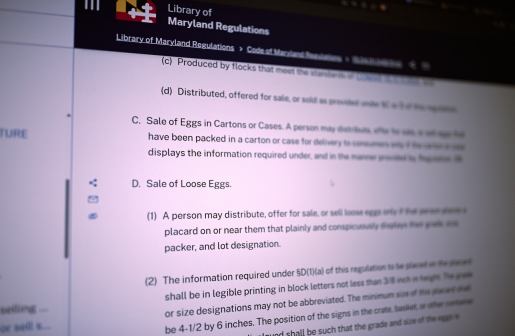Boston.gov goes open source

Boston’s new website, launched last July, will make its code open source. In a smart city panel discussion at the Information Technology & Innovation Foundation, the city’s Chief Digital Officer Lauren Lockwood, revealed Thursday that the reasoning behind the decision is to make the city’s online presence more secure and adaptable to residents’ needs.
The announcement was made during the ITIF’s Cities of Tomorrow panel, where Lockwood was asked how cities could share and scale their investments in innovation with other governments, a practice that event moderator Elizabeth Grossman of Microsoft said might help avoid duplicative efforts.
Lockwood knew exactly what to say.
“We’re announcing in a matter of minutes that we’re going to open source the entirety of the Boston website,” she said. “It’s going to be licensed under the Creative Commons so it will be completely open-sourced and we’re hoping to engage the private sector, community developers everywhere and other institutions to not just improve Boston.gov, but also allowing other cities — who are part of this website redesign epidemic that’s sweeping the country — use features of our website, or the entire thing, so they don’t have to reinvent the wheel.”
Lockwood noted that this is only the beginning of a growing mindset in Boston to make everything as publicly accessible as possible.
“There is also a very interesting opportunity of opening code by default, opening our data and it’s a thing not typically seen in the private sector,” Lockwood said “And I think it allows us this opportunity to really scale in an exponential way the kinds of interesting and successful things happening around the country.”
While the idea of open source is nothing new, Lockwood said that in government its use is becoming more of a necessity because solving problems faced by citizens often involves sharing information and partnering with other sectors. Website code that can be shared allows other cities to replicate efforts, and they’re also more easily integrated with outside upgrades from the community or private sector. Even in terms of cybersecurity, open code allows public scrutiny to find bugs and defects.
Opening the site’s code also complements design, Lockwood said. In 2015, Boston undertook a massive public engagement campaign to get feedback for its beta site. Staff visited neighborhoods and city departments, hosted community brainstorming sessions, and constantly solicited input to assess the site’s accessibility. This mindset, developing with people, as opposed to developing for people, is the foundation the site was built upon, she explained. Open source is a natural extension of that mindset.
“There’s a huge challenge of just getting out of the building to make sure you’re going to where people are to make sure you’re incorporating their opinions,” Lockwood said.
Working much of her career in the private sector in technical and consulting positions, Lockwood said she has observed that government has one big advantage with respect to open source initiatives.
“The real interesting thing for me moving from the private sector to the public, is that there’s not this competition,” she said. “The competition between cities is only friendly, and only competitive in a helpful and healthy way that sort of drives us to all get a little bit better.”
The city has posted its code on its own GitHub account here.






